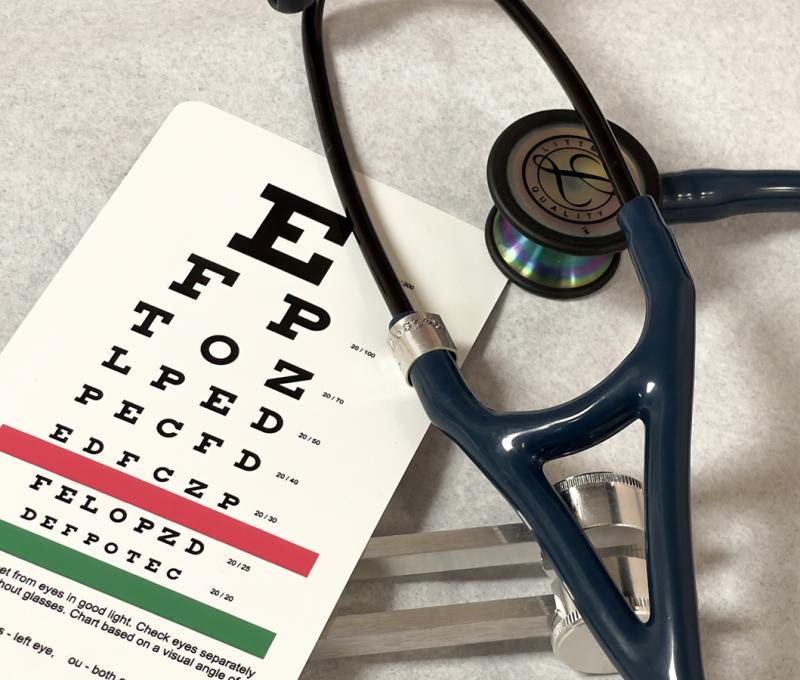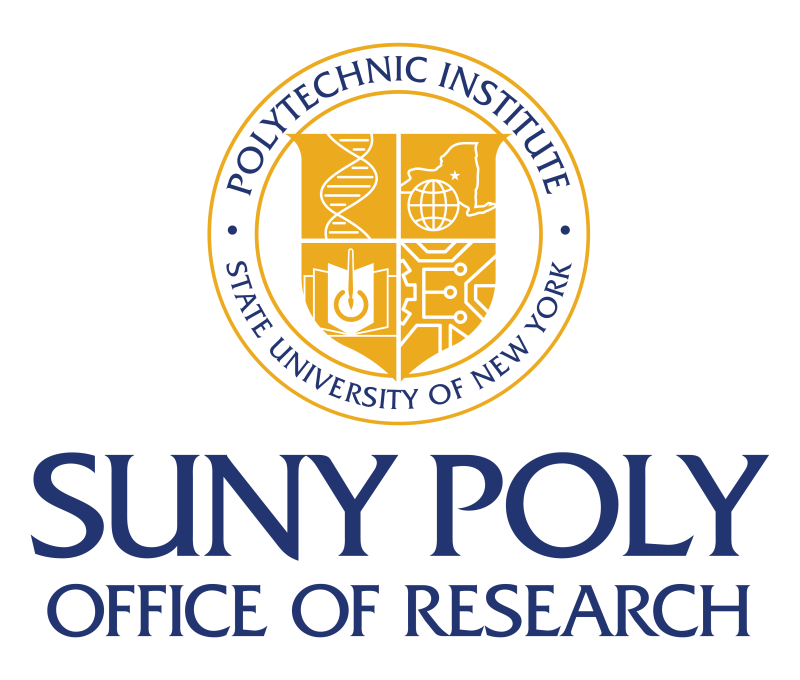SUNY Colleges of Nanoscale Science and Engineering and National Institute for Occupational Safety and Health Announce Expanded Partnership

Albany, NY – As an embodiment of Governor Andrew M. Cuomo’s public-private partnership model for innovation and economic development, the Colleges of Nanoscale Science and Engineering (CNSE) at SUNY Polytechnic Institute (SUNY Poly) today announced a continued and expanded collaboration with the National Institute for Occupational Safety and Health (NIOSH), which will further expand the CNSE-NIOSH Partnership to Advance Research and Guidance for Occupational Safety and Health in Nanoelectronics.
This unique partnership will leverage CNSE’s NanoHealth and Safety Center (NSC), located at CNSE’s $20 billion Albany NanoTech Complex, and NIOSH’s Nanotechnology Research Center (NTRC), located in Cincinnati, as well as other complementary capabilities and activities for the advancement of scientific research, discovery, innovation, and education, and for the development of workplace safety and health recommendations in areas that include nanoscale metrology, science, engineering, and manufacturing.
“We are excited to partner with NIOSH to expand this critical collaboration which leverages Governor Andrew M. Cuomo’s targeted high-tech New York State investments to enable joint, leading-edge research that will ensure greater understanding of the materials, tools, methods, and workplace environments utilized by the nanoelectronics industry, ultimately enhancing safety standards across the globe,” said SUNY Poly CEO and Officer in Charge Dr. Alain Kaloyeros. “This partnership paves the way for dynamic research programs that will positively impact the health and safety of those in the nanotechnology industry.”
“NIOSH is thrilled to announce this continued partnership which builds upon the shared strengths of both organizations as we leverage complementary world-class facilities, top-tier researchers, and nano-health and safety-based expertise to develop this pioneering program which will have broad ramifications and benefits for industry, academia, and other stakeholders,” said NIOSH Director Dr. John Howard. “We look forward to seeing this program reach its full potential as a catalyst for the creation of even more public-private-academic synergies in the region as it serves as a national model.”
The partnership will act as an intellectual and physical platform for occupational safety and health research and development that will lead to the discovery, demonstration, and deployment of guidelines and recommendations regarding the potential human health impacts of exposure to engineered nanomaterials. In addition, CNSE and NIOSH will enable related business initiatives; encourage joint use of equipment and support staff; provide opportunities for faculty, researchers, and scientists to interact and develop research and training programs; establish seminars, workshops, and conferences to disseminate key research findings; and provide new educational opportunities to train the scientists and medical practitioners of tomorrow. As world leaders in this area, CNSE and NIOSH will also seek to leverage their advanced capabilities to attract distinguished national and international scientists and engineers to visiting positions at both organizations. Partnership oversight will be provided by CNSE Assistant Vice President for NanoHealth Initiatives Dr. Sara Brenner and NIOSH Nanotechnology Research Center Associate Director for Nanotechnology Dr. Charles Geraci.
Research programs include assessment and characterization of nanoparticles in the workplace; development of reliable, efficient, and cost-effective exposure assessment methods and validation in industrial and academic settings; expanding the scope of field testing to include life-cycle analysis of products and waste; and dissemination of appropriate information to educate stakeholder groups such as occupational safety and health practitioners, researchers, industry employers, workers, policy makers, and media; among others. The joint effort is also anticipated to generate additional resources and partners through interest in the new research programs, enriching the regional, statewide, and national economic landscape.
The NanoHealth and Safety Center (NSC) is a collaborative effort between CNSE and SEMATECH that is dedicated to the development and implementation of innovative protocols and procedures to conserve resources and safeguard occupational and environmental health and safety (EHS) in the nanoelectronics industry. The first partnership of its kind in the world, the NSC and its global corporate partners focus on nanomaterial-based occupational and environmental health and safety, resource utilization, and proactive collaborative research and development. Membership in the NSC is open to chipmakers, equipment and materials manufacturers, as well as other participants in the nanotechnology, biomedical, and defense industries.
The NIOSH Nanotechnology Research Center (NTRC) was established in 2004 to identify critical issues, create a strategic plan for investigating these issues, coordinate the NIOSH research effort, develop research partnerships, and disseminate information gained. The NTRC is a matrixed center with a $10 million annual research portfolio conducted by nearly 90 scientists in Cincinnati, Morgantown, and Pittsburgh, with supporting services in Washington, D.C. and Atlanta. NTRC strategic goals include increasing understanding of new hazards and related health risks to nanomaterial workers; expanding understanding of the initial hazard findings of engineered nanomaterials; supporting the creation of guidance materials to inform nanomaterial workers, employers, health professionals, regulatory agencies, and decision-makers about hazards, risks, and risk management approaches; supporting epidemiologic studies for nanomaterial workers, including medical, cross-sectional, prospective cohort, and exposure studies; and assessing and promoting national and international adherence with risk management guidance.
####################
SUNY Polytechnic Institute. SUNY Polytechnic Institute (SUNY Poly) is New York’s globally recognized, high-tech educational ecosystem, formed from the merger of the SUNY College of Nanoscale Science and Engineering and SUNY Institute of Technology. SUNY Poly offers undergraduate and graduate degrees in the emerging disciplines of nanoscience and nanoengineering, as well as cutting-edge nanobioscience and nanoeconomics programs at its Albany campus, and degrees in technology, professional studies, and the arts and sciences at its Utica/Rome campus. As the world’s most advanced, university-driven research enterprise, SUNY Poly boasts more than $20 billion in high-tech investments, over 300 corporate partners, and maintains a statewide footprint. The 1.3 million-square-foot Albany NanoTech megaplex is home to more than 3,100 scientists, researchers, engineers, students, and faculty. The Utica/Rome campus offers a unique high-tech learning environment, providing academic programs in technology, including engineering, cybersecurity, computer science, and the engineering technologies; professional studies, including business, communication, and nursing; and offerings in the arts and sciences range from humanities to the social sciences. Thriving athletic, recreational, and cultural programs, events, and activities complement the campus experience. SUNY Poly operates the Smart Cities Technology Innovation Center (SCiTI) at Kiernan Plaza in Albany, the Solar Energy Development Center in Halfmoon, the Photovoltaic Manufacturing and Technology Development Facility in Rochester, and the Smart System Technology and Commercialization Center (STC) in Canandaigua. SUNY Poly founded and manages the Computer Chip Commercialization Center (Quad-C) on its Utica campus, and is lead developer of the Marcy Nanocenter site, as well as the Buffalo High-Tech Manufacturing Complex, Buffalo Information Technologies Innovation and Commercialization Hub, and Medical Innovation and Commercialization Hub. For information visit www.sunycnse.com and www.sunyit.edu.
About NIOSH. NIOSH is the Federal agency that conducts research and makes recommendations for preventing work-related injuries and illnesses. It was created under the Occupational Safety and Health Act of 1970 and is part of the U.S. Centers for Disease Control and Prevention. For information visit www.cdc.gov/niosh.
####
Media Contact:
Jerry Gretzinger, Vice President of Strategic Communications and Public Relations (518) 956-7359 | jgretzinger@sunycnse.com








